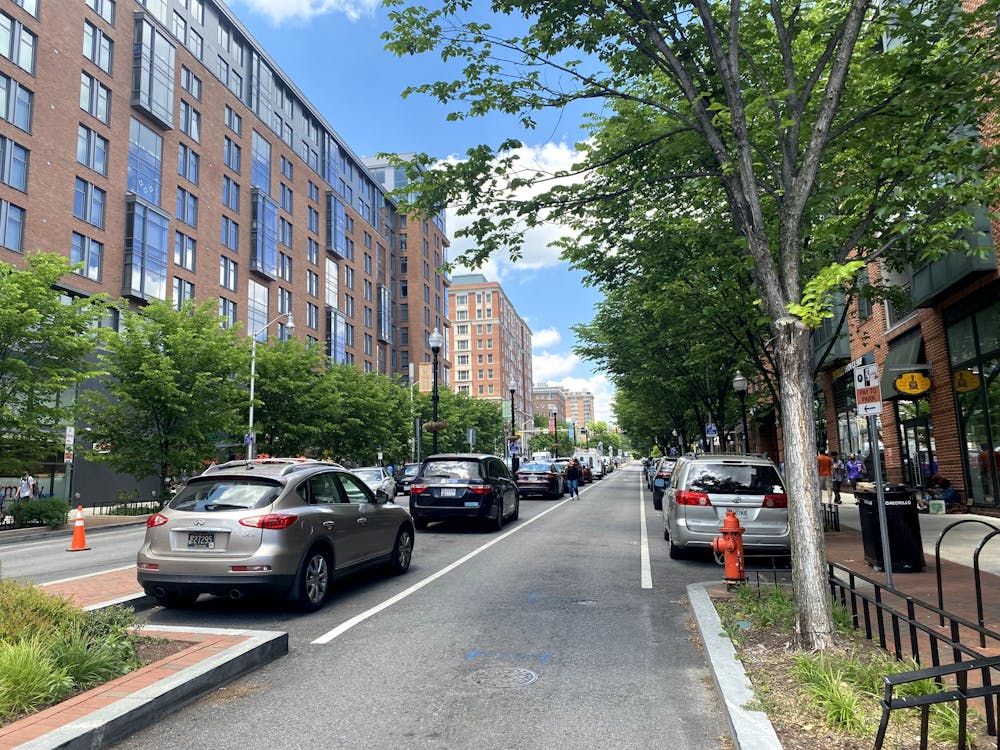In an email to the Hopkins community on Dec. 31, the University announced modifications to its COVID-19 policies for the spring 2022 semester due to the omicron variant.
The email stated that, effective Jan. 4, all undergraduate and graduate students will have to get tested for COVID-19 at least twice a week, with at least 48 hours separating each test. This fall, vaccinated students were only required to get tested once a week and unvaccinated individuals had to get tested twice a week.
Additionally, the University announced that those who test positive will be released from quarantine after five days if they show no symptoms; otherwise, they must remain in isolation.
The University administrators explained that this policy change is in response to recent Centers for Disease Control and Prevention (CDC) announcements.
“This change follows recent guidance from the [CDC] and is made in consultation with our own experts in public health and infectious disease,“ they wrote. “In light of better developed evidence about the period during which COVID is most transmissible as well as our own extensive measures to prevent the virus’ spread.”
Executive Secretary of the Student Government Association Elaina Regier highlighted that the increased testing requirement is necessary to allow on-campus activities to remain in person in an email to The News-Letter.
“Personally, I’m glad that they increased the testing frequency for students and I think that along with the booster mandate will help keep us in person this [s]pring,” she wrote. “Having to go to a testing center for a few extra minutes is a small price to pay for the health of our community.”
Senior Danae Baxter expressed her frustrations with the disparity in the availability of tests between the Hopkins and Baltimore communities in an email to The News-Letter.
“I have such easy access to PCR testing through Hopkins, and my little sister, who is staying with me off campus, cannot also use these resources. It has been almost impossible to get her access to testing in Baltimore City,” she wrote. “Everyone is sold out of at-home testing kits, and I was only able to get one for her due to nice neighbors. I wish some of our testing locations nearby were open to more people in the community.”
In late December, the University moved most Intersession classes online and introduced a COVID-19 booster shot requirement for those engaged in on-campus activity as COVID-19 cases increased around the country.
According to the most recent email, faculty and staff will now also have greater flexibility to decide whether their activities will be in person or virtual through Jan. 23. Normal workplace procedures will resume on Jan. 24.
According to the University officials, plans for an in-person spring semester remain unchanged.
“Fortunately, we continue to see no evidence of transmission in our classroom or laboratory spaces, and our plans to begin the spring semester in person on Jan. 24 remain unchanged,” they wrote.
According to Baxter, there should be more precautions in place to prevent cases from rising as students return to campus.
“I would feel better knowing that we were not beginning the semester in person. It would allow more time for everyone to get tested and isolate before beginning classes,” she wrote. “A lot of people come back to campus right after the end of [I]ntersession, and I don’t think that is enough time to test for infections that may have been picked up during travel back to campus.”
The University officials also noted that vaccinated and boosted individuals who have been exposed to someone who tests positive for COVID-19 will not need to quarantine. Those who are not vaccinated or vaccinated but not boosted must quarantine for five days if they are exposed. Anyone who has been exposed, regardless of their vaccination status, will need to test negative for COVID-19 five days after their exposure.
The administration also reiterated the need for all eligible individuals to receive their booster shot and submit proof on VMS by Feb. 1. New clinics providing booster shots will be open on campus starting Jan. 6; appointments can be made through MyChart.
The University is holding a town hall on Jan. 5 at noon to answer any questions regarding these policies.





